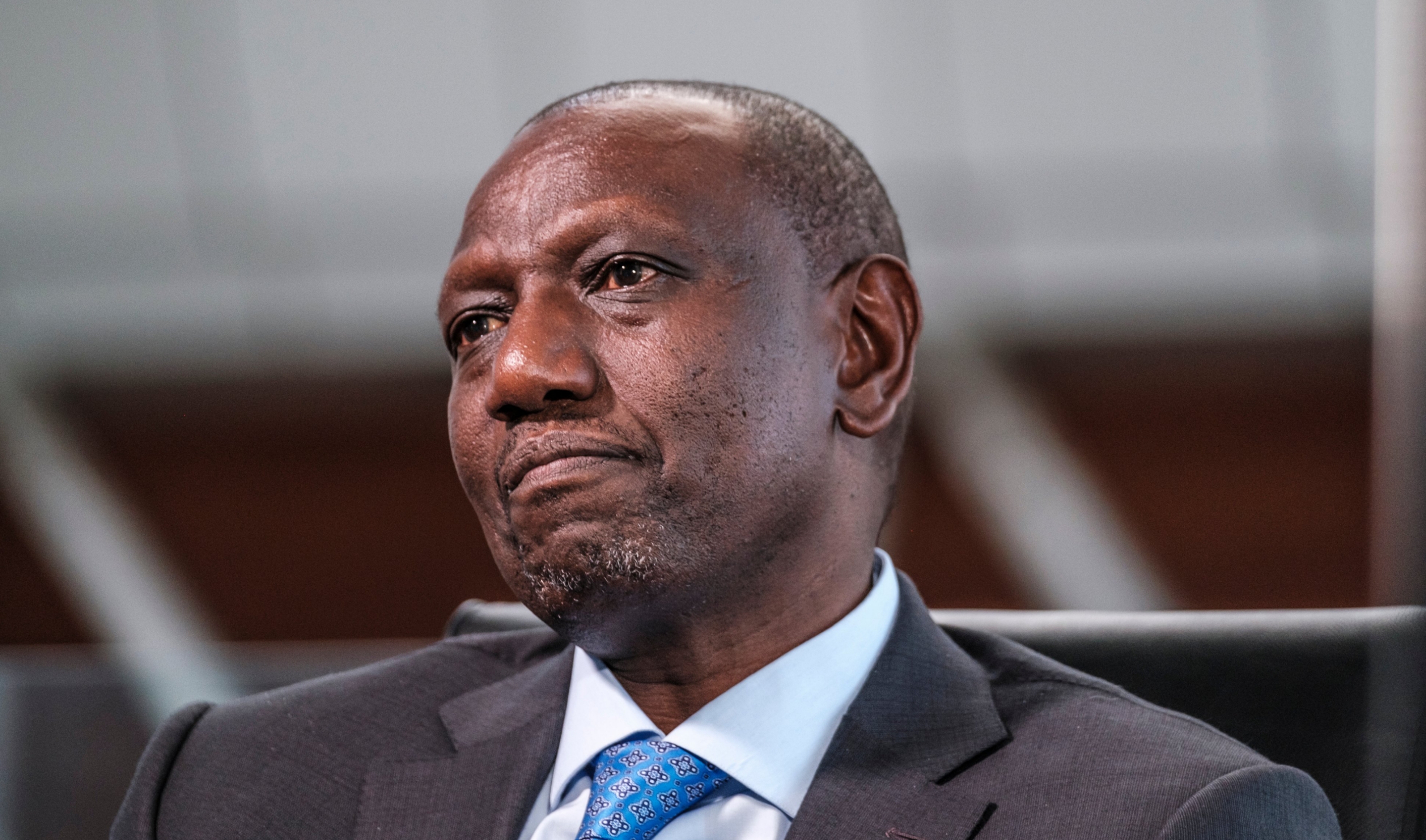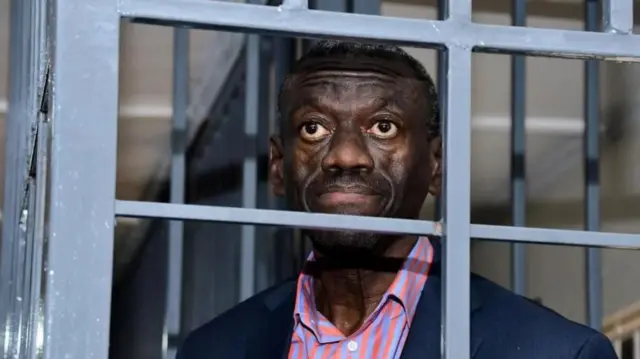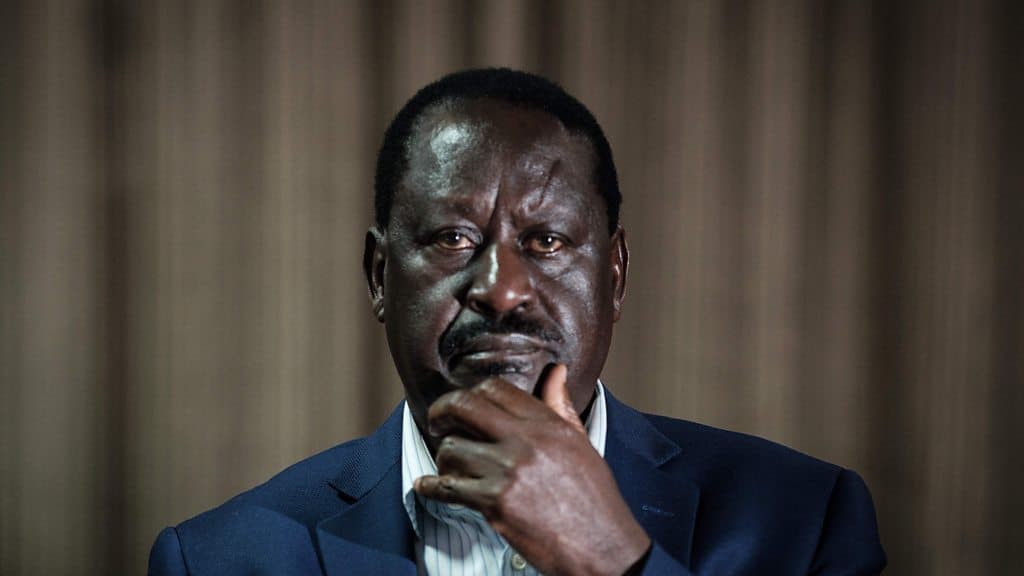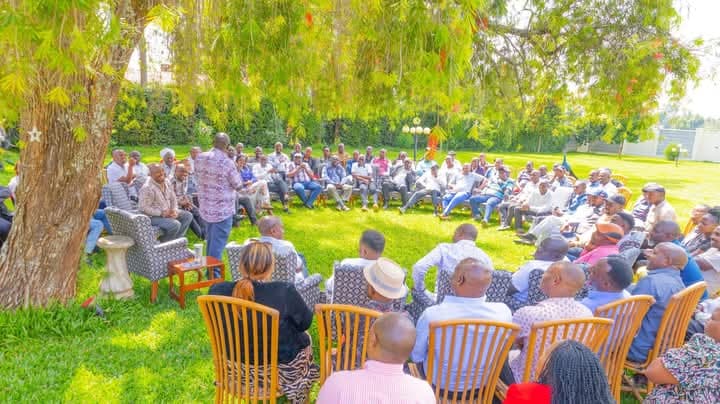The 4th Edition of the Nairobi City Marathon took a unexpected political twist on Sunday, July 6, as participants chanted 'Ruto Wantam' while racing along Uhuru Highway.
The now-popular ‘wantam’ slogan—coined from the phrase ‘one term’—is being used to express dissent against President William Ruto’s administration, a threat to vote him out come 2027 over unpopular policies.
In Videos seen by Julisha.co.ke, runners along major highways in the city participating in the annual city fete chanted 'Ruto wantam and Ruto must go' waving to the crowd of spectators.
The use of “Wantam” by marathon participants subtly signals the growing frustration among Kenyans grappling with tough economic conditions, rising taxes, and unmet campaign promises.
While the Nairobi City Marathon is typically a unifying national event focused on athletic excellence, this year’s edition became an unexpected stage for political expression.
Kenya's President William Ruto ascended to power on a platform of change, pledging to centre the populace who, for decades, have been marginalised by successive regimes.
To most, Ruto was the messiah, with a “bottom-up” economic transformation agenda, promising to cut taxes, give small businesses interest-free loans - cut the country’s debt appetite by downsizing the government.
Over Two years into his 5-year first term, Majority of Kenyans, according to recent opinion polls, believe that his policies have worsened suffering.
President William Ruto’s government has pushed Kenyans to the edge with a cost-of-living crisis that now sees three in every four citizens saying they are worse off than they were in 2022.
A new TIFA survey, paints a grim picture of the national mood, showing that across all nine of Kenya’s regions, overwhelming majorities report worsening financial conditions
The survey shows that 75 per cent of Kenyans report a sharp decline in their personal or family economic situation since the last general election, with the highest levels of economic hardship recorded in Lower Eastern and Nyanza regions.
Lower Eastern counties of Machakos, Makueni, and Kitui and Nyanza counties of Kisumu, Siaya, Homa Bay, Migori, Kisii, and Nyamira, top the list, with 82 per cent of respondents in each region reporting a decline in their economic well-being.
Even in regions where the situation appears slightly better, the figures remain bleak.
Central Rift recorded the lowest proportion of citizens reporting economic deterioration at 61 per cent, followed by Northern Kenya at 63 per cent.
Notably, in none of the nine regions did even one-fifth of respondents report any improvement in their economic status since the 2022 general election. The highest such responses were in Central Rift and Northern regions, both at a modest 19 per cent.
TIFA linked citizens’ perceptions of their economic situation with their views on the country’s general direction.
Among those who believe Kenya is on the wrong path, a massive 86 per cent reported economic decline over the past three years. In stark contrast, only 30 per cent of those who feel the country is headed in the right direction reported worsening economic conditions.
Conversely, just four per cent of those who say Kenya is on the wrong track reported an improvement in their financial situation, compared to 36 per cent of those who think the country is on the right path.
President Ruto was given the most credit for continuing or launching infrastructure projects.
However, that recognition, at 14 per cent, was nearly three times the number of those who praised his efforts in addressing the high cost of living, which stood at just five per cent.
Despite the infrastructure gains, nearly half of all respondents (46 per cent) said they could not identify any significant achievement by the current government, while only seven per cent were unable to mention a single failure.
The survey was conducted between May 2 and May 6, 2025, among 2,024 respondents across nine regions—Central Rift, Coast, Lower Eastern, Mt Kenya, Nairobi, Northern, Nyanza, South Rift, and Western.
The President is facing backlash. Once in power, Ruto reneged on the popular promises under his manifesto and retained the exclusionary, oppressive, and divisive state that has virtually retained all the colonial attributes.
Ruto's most definitive moment, when he Accrued intense resentment, was the proposed Finance Bill 2024.
The Finance Bill 2024 was meant to anchor the government revenue collection and reduce external borrowing that has sank Kenya into massive debt.
However, through social media and other channels, Kenyans of all walks of life expressed outrage at the punitive taxes proposed under the Bill yet there is no accountability for endemic corruption, and wastage by the government.
Despite spirited opposition, the Bill went through the first and second reading and was eventually passed while protests were raging outside parliament. So enraged were the protesters that they stormed the parliament buildings and forced the MPs to scamper for safety.
Upon realising that he was fast losing the political initiative, President Ruto declined to assent to the bill. Had it become law, the Bill would have imposed a raft of taxes on Kenyans touching on trade, personal income, agriculture, health, investment, housing, and virtually every other sector conceivable.
The Ruto administration is feeling the Effect. Having been forced to use the Supplementary budget, the government has grappled with Financial Short-comings.
Social Health Authority, another key Component in Ruto's Manifesto to Provide Universal Health Insurance, has not been spared either. Marred by system outages, graft accusations in procurement processes among many other issues.
Civil Servants have no reason to smile at the 'Hustler'. Increased statutory deductions such as the Housing Levy, Social Health Insurance Fund (SHIF), and revised NSSF contributions, have reduced many civil servants’ take-home pay to below 30 per cent. The squeeze on the payslip, has seen the Kenya-Kwanza on the receiving end, yet those without jobs have something to say as well.
Unemployment, is a Major issue that has seen the youth in the country declare, "Ruto Must Go". More than half of the over 200,000 students who graduate annually have not secured jobs. Most of those employed are either underemployed or underpaid and typically have minimal job security.
The youth, who form 35 percent of the Kenyan population, have the highest unemployment rate at 67 percent. Over a million young people enter the labour market annually without any skills, some having dropped out of school or completed school and not enrolled in college. Add the over 1 million graduates who are unemployed, underemployed, underpaid, and staring at stalled mobility, fuelling discontent.
Meanwhile, President Ruto has trivialized the viral “Wantam” chants, describing them as a recurring part of Kenya’s political history that does not faze him.
Speaking recently, the president dismissed the "Ruto must go" slogan popular among opposition circles as an empty rhetoric that offers no solutions to the country's pressing issues.
The President, accused the opposition leaders of lacking a clear development agenda, with their only focus being his ouster from office.
Ruto stated, "These people have no plan. Their so-called plan is just 'Ruto must go', how will that Kenyans?"
" You don’t know how our youth will get jobs, you don’t know how agriculture will progress, you don’t know how children will go to school...You have no plan to do anything."
He stressed that his administration remains focused on key priorities such as youth employment, agricultural productivity, affordable education, and access to healthcare.
Ruto made it clear that he does not lose sleep over political chants or trending songs on social media. Instead, he called on Kenyans to shift their attention from political sideshows and focus on building the nation. Brushing off personal criticism, the president said he remains unmoved by the nicknames critics often hurl at him.
He emphasised that his mission is to fix critical sectors in Kenya, including education, infrastructure, electrification, and devolution. Ruto also welcomed contributions from all leaders, regardless of political affiliation, saying his goal is to unite the country and drive it toward prosperity.







